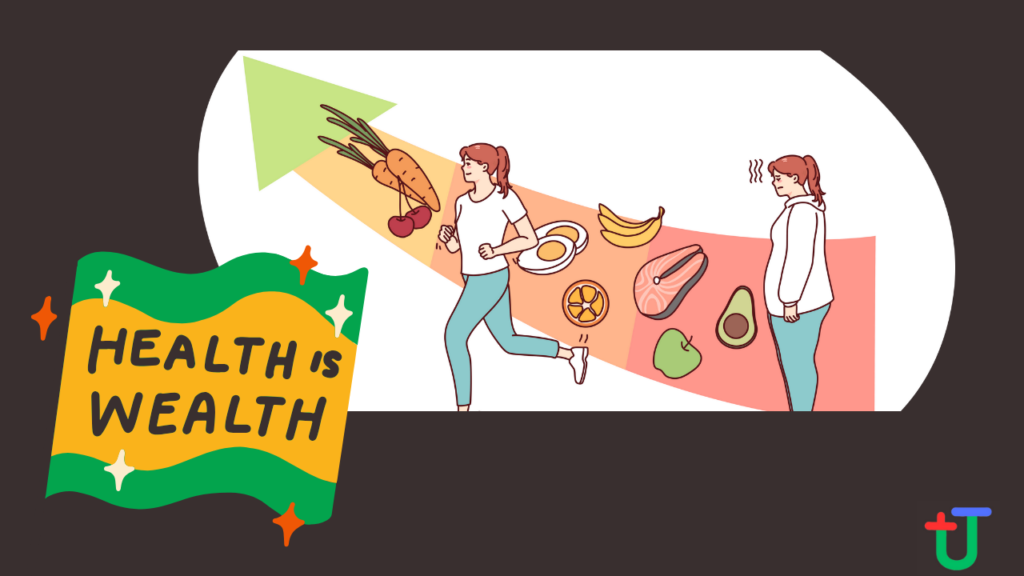Well Being Society
Thank you for reading this post, don't forget to subscribe!

Introduction of well being society:
Well-being in society encompasses various aspects of people’s lives, including physical, mental, and emotional health, as well as social and economic factors. It involves ensuring access to healthcare, education, a safe environment, and opportunities for personal and collective growth. A society that prioritises well-being strives for equity, inclusion, and the overall prosperity of its members.
Well, being Society for Children:
A wellbeing society for children focuses on creating an environment where children thrive emotionally, physically, socially, and academically. It involves providing access to quality education, healthcare, a safe and supportive community, recreational activities, and opportunities for personal development. Prioritising mental health, ensuring child protection, promoting inclusivity, and fostering positive relationships among children and adults are crucial elements in building a wellbeing-focused society for children.
How to Create a Well Being Society for children?
Creating a wellbeing-focused society for children involves various approaches and actions:
1. Quality Education:
Ensure access to quality education that caters to individual needs, promotes holistic development, and fosters creativity and critical thinking.
2. Healthcare:
Provide accessible healthcare services, including regular check-ups, immunizations, mental health support, and nutrition programs.
3. Safe Environment:
Establish safe and nurturing environments, both at home and in the community, free from violence, abuse, and discrimination.
4. Supportive Relationships:
Foster positive relationships with caring adults, peers, and communities to build strong social connections and emotional support systems.
5. Child Protection:
Implement and enforce laws and policies that protect children from exploitation, abuse, neglect, and all forms of violence.
6. Inclusive Opportunities:
Ensure inclusivity by providing equal opportunities for all children regardless of their background, abilities, or socio-economic status.
7. Recreation and Play:
Encourage recreational activities, play, and leisure time as essential components of children’s development.
8. Parental Support:
Provide resources, guidance, and support to parents and caregivers to enable them to create nurturing environments for their children.
9. Community Engagement:
Involve the community in decision-making processes that affect children, encouraging active participation and support.
10. Education and Awareness:
Promote awareness and education on children’s rights, mental health, nutrition, and other crucial aspects of child development among parents, caregivers, and the broader community.
Combining these elements and collaborating across various sectors including government, education, healthcare, social services, and community organisations can help in creating a society that prioritises the wellbeing of its children.
Well, being a society for young people:

Uniques need to build a well being society for young people:
Creating a wellbeing society for young people involves similar principles to those for children, with a focus on addressing the specific needs and challenges faced by adolescents and young adults:
1. Mental Health Support:
Providing accessible mental health services and resources tailored to the unique challenges young people face, such as stress, peer pressure, and identity development.
2. Education and Skills Development:
Offering quality education, vocational training, and opportunities for skill-building to prepare young people for the workforce and adult life.
3. Access to Healthcare:
Ensuring easy access to healthcare services, including sexual and reproductive health, substance abuse support, and general healthcare, to promote physical wellbeing.
4. Safe Environments:
Creating safe spaces that are free from violence, discrimination, and bullying, allowing young people to express themselves and feel accepted.
5. Empowerment and Participation:
Encouraging active participation in decision-making processes, civic engagement, and providing platforms for young people to voice their opinions and contribute to society.
6. Employment Opportunities:
Creating job opportunities, internships, mentorship programs, and entrepreneurship support to facilitate a smooth transition from education to employment.
7. Technology and Digital Wellbeing:
Promoting responsible and healthy use of technology, addressing online safety, cyberbullying, and providing digital literacy education.
8. Financial Literacy:
Offering resources and education on financial management to equip young people with the skills to make informed financial decisions.
9. Supportive Relationships:
Encouraging positive relationships with peers, family, mentors, and communities to provide emotional support and guidance.
10. Personal Development:
Facilitating opportunities for personal growth, self-discovery, and the exploration of interests and passions.
Creating a wellbeing-focused society for young people involves recognizing their unique needs, aspirations, and challenges while providing the necessary support, opportunities, and resources to empower them to thrive and contribute positively to society.
How to create well being society for young people:
Developing a wellbeing-focused society for young people involves a multifaceted approach that incorporates various strategies and actions:
1. Consultation and Involvement:
Engage young people in decision-making processes, seeking their input on policies, programs, and initiatives that directly affect them.
2. Education and Awareness:
Provide comprehensive education on mental health, sexual health, substance abuse prevention, financial literacy, and other essential life skills through schools, community programs, and digital platforms.
3. Accessible Healthcare:
Ensure easy access to healthcare services, including mental health support, sexual and reproductive health services, and general healthcare facilities, without stigma or barriers.
4. Empowerment Programs:
Establish mentorship programs, leadership training, and empowerment initiatives that equip young people with skills, confidence, and opportunities for personal and professional growth.
5. Safe Environments:
Create safe spaces, both physical and digital, where young people feel secure to express themselves, share concerns, and seek help without fear of judgement or discrimination.
6. Employment and Training:
Offer vocational training, internships, apprenticeships, and job placement services to prepare young people for the workforce and foster economic independence.
7. Community Engagement:
Encourage community involvement and support by organising events, workshops, and programs that promote inclusivity, diversity, and social cohesion among young people.
8. Technology and Innovation:
Leverage technology positively by providing access to digital resources, teaching digital literacy skills, and promoting responsible online behaviour.
9. Policy and Advocacy:
Advocate for policies and laws that prioritise the rights, wellbeing, and interests of young people at local, national, and international levels.
10. Support Networks:
Develop support networks, including peer support groups, counselling services, and helplines, to address the diverse needs of young people and provide timely assistance.
By combining these strategies and fostering collaboration among government agencies, educational institutions, healthcare providers, community organisations, and young people themselves, societies can create environments that actively promote the wellbeing and development of their youth.
Benefits of Well being society:
Creating a wellbeing-focused society for both children and young people offers numerous benefits:
1. Improved Mental Health:
Access to mental health resources and supportive environments reduces stress, anxiety, and depression among young people, fostering better mental wellbeing.
2. Enhanced Educational Attainment:
Supportive educational environments lead to improved learning outcomes, higher graduation rates, and increased opportunities for further education or career advancement.
3. Increased Resilience:
Empowerment programs and skill-building initiatives help young people develop resilience, enabling them to cope with challenges and setbacks more effectively.
4. Better Physical Health:
Accessible healthcare services and health education promote healthier lifestyles, reducing the risk of chronic illnesses and improving overall physical wellbeing.
5. Career Opportunities:
Vocational training, employment programs, and mentorship initiatives equip young people with skills and experiences necessary for successful entry into the workforce, leading to improved career prospects.
6. Empowerment and Civic Engagement:
Providing platforms for young people to voice their opinions, participate in decision-making, and engage in community initiatives fosters a sense of empowerment, agency, and social responsibility.
7. Reduced Risky Behaviours:
Wellbeing-focused societies often lead to decreased engagement in risky behaviours such as substance abuse, violence, and unsafe sexual practices among young people.
8. Positive Relationships:
Creating safe and inclusive environments encourages the formation of positive relationships with peers, family, and the community, contributing to emotional support and a sense of belonging.
9. Innovation and Creativity:
Support for creativity, innovation, and entrepreneurship fosters an environment where young people can explore their talents, ideas, and aspirations.
10. Long-term Contributions to Society:
Empowering young people to lead healthy, fulfilling lives leads to the development of responsible, engaged citizens who contribute positively to their communities and society as a whole.
Ultimately, investing in the wellbeing of young people and children not only benefits them individually but also contributes significantly to building healthier, more prosperous, and socially cohesive societies.
Conclusion:
A wellbeing-focused society for both children and young people is a holistic and essential endeavour that reaps numerous benefits for individuals and society as a whole. By prioritising their needs and creating supportive environments, societies can cultivate thriving generations equipped with the tools, resources, and support necessary for optimal development.
For children, such a society ensures a nurturing environment that encompasses quality education, healthcare, safety, and emotional support. This approach fosters healthy physical, emotional, and cognitive development, laying the foundation for well-rounded individuals equipped to face the challenges of adulthood.
In the case of young people, a wellbeing-focused society builds on this foundation by addressing the specific needs and challenges faced during adolescence and young adulthood. It empowers them through education, skills development, mental health support, employment opportunities, and civic engagement, fostering resilience, agency, and a sense of belonging.
The benefits are extensive, encompassing improved mental and physical health, enhanced educational attainment, increased resilience, better career prospects, and active civic participation. Moreover, such societies nurture responsible, engaged citizens who contribute positively to their communities and the broader society.
Ultimately, investing in the wellbeing of both children and young people is not only a moral imperative but also a strategic investment in the future. It lays the groundwork for healthier, more prosperous societies that thrive on the collective strength and contributions of empowered and fulfilled individuals across all age groups.
FAQs:
Absolutely, here are some frequently asked questions (FAQs) about creating a wellbeing-focused society for both children and young people:
Question:What does a wellbeing-focused society mean for children and young people?
Answer:well being-focused society prioritises the physical, emotional, and social needs of children and young people, ensuring they have access to quality education, healthcare, safety, and support systems.
Question:How does a wellbeing-focused society benefit children and young people?
Answer: It promotes healthy development, better academic performance, improved mental health, increased resilience, enhanced opportunities for career growth, and active civic engagement.
Question:What are the key elements of a wellbeing-focused society for children and young people?
Answer:Key elements include quality education, accessible healthcare, safe environments, supportive relationships, empowerment programs, inclusive opportunities, and community engagement.
Question:How can communities contribute to creating a wellbeing-focused society for children and young people?**
Answer:Communities can contribute by providing safe spaces, support networks, mentorship programs, recreational activities, and opportunities for young people to engage in decision-making processes.
Question:How can policymakers and governments support the development of a well being-focused society for children and young people?
Answer:They can support by implementing policies that prioritise child protection, mental health services, education, healthcare accessibility, employment opportunities, and initiatives that encourage youth participation in community development.
Question: What role do parents and caregivers play in a well being-focused society?
Answer:Parents and caregivers are crucial in providing nurturing environments, emotional support, access to resources, and guidance that contribute to the overall wellbeing and development of children and young people.
Question:How does technology impact the wellbeing of children and young people in a wellbeing-focused society?
Answer: Technology can be used positively to provide access to educational resources, promote digital literacy, facilitate communication, but it also requires education on responsible usage and online safety.
Question: How can we ensure inclusivity in a well being-focused society for children and young people?
Answer:By promoting diversity, creating inclusive spaces, addressing barriers to access, and ensuring equal opportunities for children and young people from all backgrounds, abilities, and socio-economic statuses.
These FAQs help outline the key aspects and considerations necessary to create and maintain a society that prioritises the well-being and development of both children and young people.
